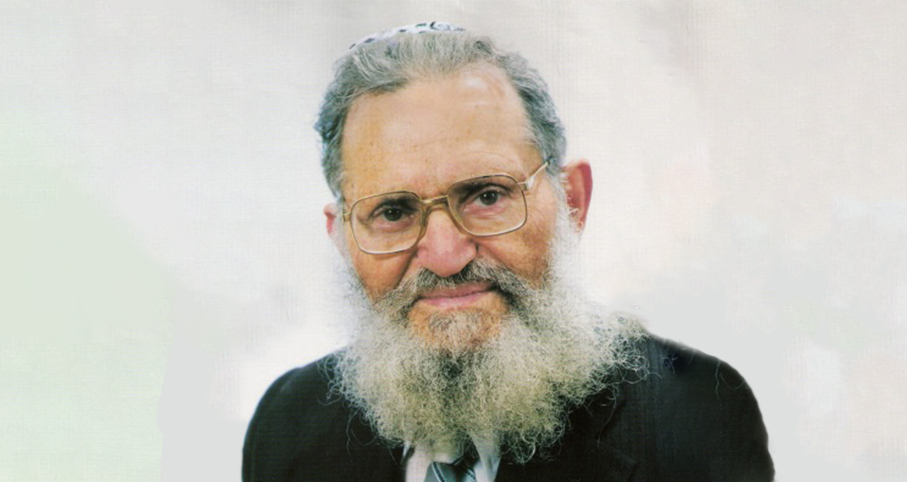- Sections
- P'ninat Mishpat
740
Who is a relative in these matters? The relationship of brothers is considered a first degree relationship (rishon b’rishon). The son of one of the brothers with his uncle is called a first with a second (rishon b’sheni). First cousins are second with second (sheni b’sheni). These relationships all disqualify one to testify. The next level of relationship, namely the grandsons of brothers (second cousins) or third with third (shlishi b’shlishi), does not disqualify. Even the grandson of one brother with the son of another (sheni b’shlishi) does not disqualify. These rules are even for a "half" relationship, based on brotherhood through a father or a mother alone. Also, "a husband is like his wife." This means that when two people are close enough, the disqualification applies to their spouses as well. However, the relatives of the spouses are fit to testify for or against their in-law’s relatives.
In addition to not testifying about a relative, two relatives may also not testify together about any issue. Furthermore, witnesses may not be relatives of the judges (who also may not be each other’s relatives).
The Torah says: "Do not place your hand with a rasha (wicked person) to be a corrupt witness." Chazal learn from this that a rasha is disqualified to serve as a witness. In this regard, one who violates a negative commandment that carries the punishment of flogging is a rasha. If one violates rabbinic prohibitions, he is unfit on a rabbinic level. The Amoraim dispute whether the "wickedness of corruption" refers only to one who sins for monetary gain or whether anyone who willfully violates a Torah law is disqualified (we accept the latter view). Some Rishonim say that a rabbinic violation and disqualification applies only if he violated it for a specific gain. Thus, for example, one who signed as a witness on a loan contract that includes usury (which is rabbinically prohibited) is not disqualified (Rama, Choshen Mishpat 34:3). Another difference between one who violates a rabbinic prohibition as opposed to a Torah-level one is that he is disqualified only if beit din formally pronounces him to be unfit, which rarely transpires in our times.
Finally, in order for one to be disqualified as a rasha, he must be fully aware that the action he performed is a sin. The logic of the disqualification is that someone who does not care about his moral obligations may not care about the need to testify truthfully. This contradicts the absolute credibility the Torah awards fit witnesses. There is no reason to suspect though that one who violates a prohibition he was not fully aware of will violate the prohibition of testifying falsely given that the latter is something that all understand.

P'ninat Mishpat (770)
Various Rabbis
149 - Disqualifications of Witnesses
150 - Disqualifications of Witnesses
151 - Conflicting Wills in Regard to a Home
Load More

Aftermath of a Complex Partnership – part I
based on ruling 76096 of the Eretz Hemdah-Gazit Rabbinical Courts
Beit Din Eretz Hemda - Gazit | Iyar 8 5782

Mutual Repairs Agreement – part I
(based on ruling 82031 of the Eretz Hemdah-Gazit Rabbinical Courts)
Beit Din Eretz Hemda - Gazit | 16 Tammuz 5784

P'ninat Mishpat: Unsuccessful Transfer of Yeshiva – part IV
based on ruling 82138 of the Eretz Hemdah-Gazit Rabbinical Courts
Beit Din Eretz Hemda - Gazit | Nisan 5784

Mechila that May Be Lacking
Various Rabbis | 5774

Performing a Proper Hesped
Rabbi Yirmiyohu Kaganoff | 5771

Understanding the Shalom Zachor
Rabbi Avraham Rosenthal | Cheshvan 12 5780

The Mitzvah of “Duchening” - Birchas Kohanim
Rabbi Yirmiyohu Kaganoff | 5769

The Musaf of Rosh HaShanah
Rabbi Yirmiyohu Kaganoff | Elul 5768

P'ninat Mishpat: Unsuccessful Transfer of Yeshiva – part IV
based on ruling 82138 of the Eretz Hemdah-Gazit Rabbinical Courts
Beit Din Eretz Hemda - Gazit | Nisan 5784






